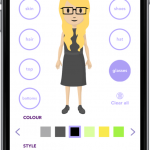In Major Pivot, Oculus Shutters Its VR Film Studio
Facebook-owned Oculus announced today that it is shutting down its virtual reality filmmaking operation, Story Studio, effective immediately in order to focus its efforts on supporting third-party VR content development.
In the blog post, Oculus head of content Jason Rubin wrote that, “Now that a large community of filmmakers and developers are committed to the narrative VR art form, we’re going to focus on funding and supporting their content. This helps us turn our internal research, development, and focus toward exciting but unsolved problems in AR and VR hardware and software.”
The move means the immediate shuttering of all Oculus Story Studio projects, including development of its fourth film, Wolves in the Wall, and continued work on its innovative content-creation tool, Quill. However, Oculus is planning on open-sourcing the Quill source code and encouraging third-party developers to continue work on it.
Despite the shutdown, there will be no layoffs at Oculus. Instead, every Story Studio employee will be given an opportunity to find a role elsewhere at Oculus or Facebook.
That includes Story Studio creative director Saschka Unseld. But it’s also hard to see someone like Unseld, a former filmmaker at Pixar, finding a satisfying role at Facebook, even though he will be given the chance to take on responsibilities in the company as a consultant or technical advisor.
The decision to shut down Story Studio, which has made the highly regarded films Lost, Henry, and Dear Angelica, will allow Oculus to devote more resources to programs like its VR for Good initiative, which provides resources, mentorship, and equipment to outside VR filmmakers.
Within the VR industry, shutting down Story Studio is likely to be seen as unsurprising, but as a bit of a disappointment.
“I think they had a very noble effort of trying to create a [VR filmmaking] community and fund people,” says Anthony Batt, a cofounder of the VR content developer and platform company Wevr. But “it didn’t seem as in line [to] what Facebook was doing. I think in a perfect world, they should be still doing that. They shouldn’t be closing it.”
Batt noted that while Oculus’s decision is good for companies like Wevr, because it removes important competition, it “may [still] seem negative to the [VR] industry.”
Importantly, though, Batt doesn’t believe the shutdown is due to any particular problems at Story Studio. Instead, he said he thinks an operation like Story Studio just didn’t fit into the long-term plans of a major technology company like Facebook, which focuses its energies on developing platforms and encourages outsiders to build on top of them.
In his blog post, Rubin noted that Oculus has last year pledged $ 250 million to fund external VR content development, resources that went toward numerous big-name VR projects, including “Robo Recall,” “Rockbound VR,” and others. Now, he said, Oculus plans to “carve out” $ 50 million from that fund to support “non-gaming, experiential VR content.”
In other words, the kinds of cinematic projects that Story Studio was known for.
At the same time, Rubin wrote, Oculus will continue to offer a range of resources—including mentorship opportunities, tutorials, best practices, and more—to outsiders.
The Story Studio shuttering comes not long after a series of management changes at Oculus, including the hiring of Hugo Barra as head of all of Facebook’s VR efforts, the stepping down of former Oculus CEO Brendan Iribe to run its PC VR operation, the hiring of longtime Apple vet Michael Hillman to head up hardware, and perhaps most notably, the departure of Oculus founder Palmer Luckey in the wake of a politics-oriented scandal and his being found to have violated an NDA in the company’s earliest days, a violation that cost Facebook $ 500 million in a lawsuit filed by ZeniMax.
To some, the studio shutdown, while making sense from the perspective that Facebook generally wants to build platforms and have third-parties develop on top of them, raises questions about its place in the larger world of technology.
“There’s something else that’s going on about original content,” notes Gartner analyst Brian Blau. “Google, Apple, Amazon,…and others are diving deeper into it, so I’m a little surprised that Facebook isn’t following that pattern.”
Oculus’s closest platform competitor in the high-end VR headset market, Valve, has been a game company that developed content internally, notes Blau. And in the game console market, most of the industry leaders have funded internal content studios.
“It’s happening around them,” he says, “so I’m a little surprised that they’re not doing something a little more substantial.”
Then again, Blau said, the move may well make sense from the perspective that Facebook CEO Mark Zuckerberg has said over the years that the company doesn’t really want to be a content developer, and that any content creation efforts would be short-lived.
“So it sounds like it’s in line with what Facebook has said before…with what Zuckerberg has said before, and also seemingly in line with how they operate Facebook and the other properties,” like Instagram, Messenger, and WhatsApp, adds Blau.
He adds that it’s possible the decision to close Story Studio may reflect Facebook’s internal thinking that the slow sales of VR headsets like the Oculus Rift means that spending money on content development isn’t the best use of their resources at this time. If that’s true, he added, “I wouldn’t put it past Facebook to have another [internal content development] plan sometime down the road.”
(46)














